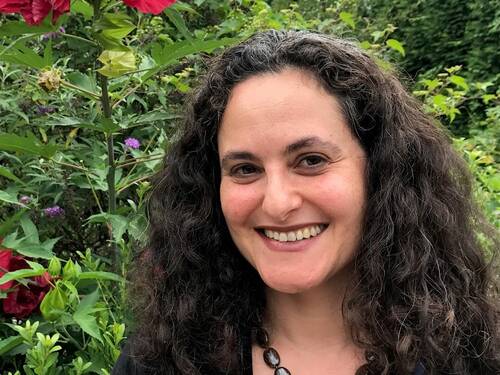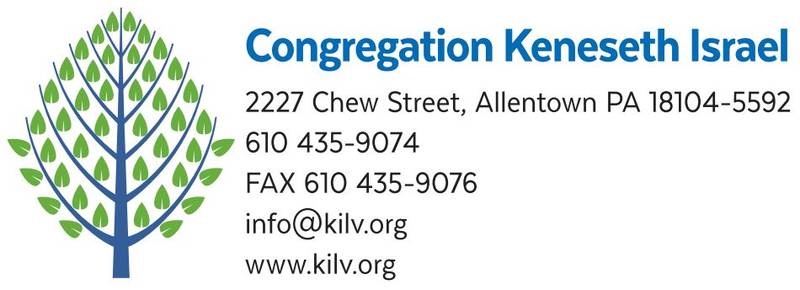Becoming Jewish
Conversion/Becoming Jewish
Conversion at KI
What does it mean to be Jewish? The Jewish tradition teaches us that to be a Jew is to connect your fate with that of Jews everywhere. It is a decision that should be undertaken with intent, meditation and commitment. Conversino to Judiasm is a powerful, challenging and transformative act.
The conversion process will help you explore all that Judaism entails. At KI the process takes about a year.
Kl steps to conversion
Entering the conversion process does not necessarily commit you to conversion.
1. Study
With the guidance of the rabbi you will chart a course of study and personal goals.
2. Mentoring
A mentor, who will function as a guide to assist you in achieving your goals, is selected from members of the synagogue.
3. Community
Judaism is a tradition that cannot be practiced alone. Individuals studying for conversion are encouraged to join us at Kl for Shabbat, holiday celebrations, community classes and volunteer opportunities to learn how you can put theory into practice.
4. Conversion
Your conversion culminates with an appearance before a beit din (religious court). plus a visit to the mikvah (ritual bath). The congregation then publicly welcomes you into the community. It is hoped that upon your conversion that you choose to become a member of the Kl congregation.
When You’re Ready
For questions or to begin the process, talk to Rabbi Tornberg by contacting the office.
Becoming Jewish Q&A
If I take a Judaism class, will I be expected to convert?
No. Basic Judaism classes are open to anyone who wants to learn more about Judaism, including individuals considering conversion, interfaith couples, and those who were born Jewish and want to learn more about their own heritage. Although many people do take the course as part of the process of converting to Judaism, there are no assumptions or expectations that you will convert as a result of your participation in the class.
Why do some people consider converting to Judaism?
People convert to Judaism for many reasons. Some are seeking religious meaning in their lives—with or without any connection to a Jewish partner—and simply find that Judaism offers a spiritual and religious place in which they are comfortable. For others, a relationship or marriage with a Jewish person offers them a first chance to explore Judaism. And there are those who choose a path to conversion upon discovering that their family has a history that includes people of the Jewish faith.
How do I know if Judaism is right for me?
The best way to begin is by participating and learning. Try attending services or events at the temple; if you have Jewish friends or Jewish family members, ask to share in Shabbat and holidays with them. As you study and explore Jewish practice and customs at your own pace, you will become increasingly comfortable with them.
Another way to get a sense of Jewish traditions and practices is to enroll in introductory classes in
Judaism which Kl offers to the entire community.
If I decide I want to become a Jew, what is the first step?
First, make an appointment with the rabbi who will discuss the process of conversion, design an educational path for you to take, and guide you through every step of the process. The rabbi will discuss your reasons for wanting to convert.
People considering conversion to Judaism are expected to study Jewish theology, rituals, history, culture, and customs, and to begin incorporating Jewish practice into their lives.
Do Jews seek converts?
No. Judaism is an open religion that readily encourages and welcomes those who turn to it for fulfillment and guidance in meeting life's challenges. At the same time, Judaism respects the religious beliefs of others, as well as the convictions of those who choose no religion.
If I become Jewish, will I be welcome within the Reform Jewish community?
Yes. Modern-day Reform Jews wholeheartedly welcome those who have chosen to convert to Judaism, recognizing that our Jewish community is made stronger by those who actively seek to become Jews. As more and more people chose to enter the Jewish community and as public discussion of such choice grows more commonplace, they have found that their acceptance in the Jewish community has grown. In fact, the Reform Jewish community, as a whole, is proud of its many congregational leaders, as well as a number of rabbis and cantors, who have
converted.
If I convert with a Reform rabbi, will all rabbis consider me a Jew?
If I become a Jew, will I be expected to separate from my Not all. Reform, Reconstructionist, and, under certain circumstances, Conservative rabbis, recognize the validity of conversions performed by rabbis of all branches of Judaism. Most Orthodox rabbis, however, do not recognize non-Orthodox conversions. Your rabbi can discuss this with you.
If I become a Jew, will I be expected to separate from my family of origin?
No. Conversion to a new religion does not make you into something altogether new, nor does it require you to sever family ties or memories. Some converts to Judaism find, however, that, especially initially, their family may be hurt or confused by their choice. You are not alone. The rabbi would be willing to discuss this with you.
If I decide not to become a Jew but I have a partner who is, can our children be raised as Jews?
Yes. Many interfaith couples raise their children as Jews, and in many such families, the non-Jewish parent still plays a key role in providing for their children’s Jewish education and creating a supportive Jewish home environment. The more you learn about Judaism, the easier this will be for you. Many Jews see such parents as the givers of a precious gift and as a blessing to the Jewish people.
If I decide not to become Jewish, can I still worship in a synagogue with my Jewish family?
Yes. KI warmly welcomes interfaith families to participate in synagogue life in various ways.
Compelled by a verse from the Book of Isaiah 56:7 —“My house shall be called a house of prayer for all peoples" — almost all Jewish worship services are open to the public, so you and your family are welcome to attend. Shabbat services are held on Friday evenings and some Saturday mornings. Call the temple office during the week to find out specific times of worship.
Our Congregation
Keneseth Israel is a place of strength and beauty where prayer is meaningful and participatory, and people reach out to one another during times of celebration and sadness. A spirit of enthusiasm is alive at Kl. A warm, welcoming and dynamic congregation—which includes the Women of KI and the Brotherhood—create a caring community where the exchange of thoughts and ideas is encouraged.
Founded in 1903, Keneseth Israel continues to perpetuate and strengthen Reform Judaism. KI is a caring, supportive and sensitive congregation who makes creating, nurturing and sustaining community our central pillar.
We strive to serve the diverse needs of singles and families, Jews of all races, incomes, cultures and sexual orientations, adults and children with special needs and Jews-by-choice, and reach out to the unaffiliated and interfaith families. If you are searching for a spirited close-knit community, unique opportunities for lifelong Jewish learning, and a part in determining how the members of a 21st-century temple can help change the world, we invite you to become part of our Keneseth Israel family.
Our Rabbi

Rabbi Tornberg
kilv.org
- Calendar
- Leadership
- Events
- Religious School classes
- Holidays
- Adult Education classes
- Photos galore
- Social action
Jewish tradition teaches,
"More beloved by God than all the children of Israel who stood at Mt. Sinai are those who choose
Judaism, who come to the Torah of their own accord.”
—MlDRASH TANCHUMA
Keneseth Israel is affiliated with both the Union for Reform Judaism and the Central Conference of American Rabbis.

Thu, September 18 2025
25 Elul 5785




